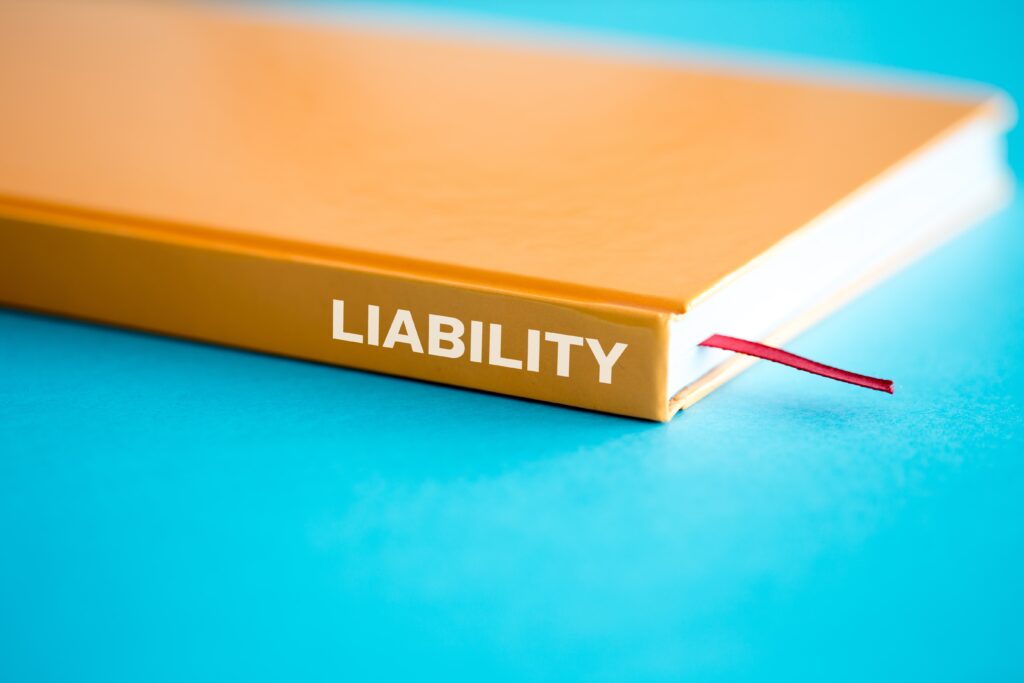Understanding Virginia’s statute of limitations for personal injury claims can mean the difference between receiving fair compensation for your injuries and losing your legal rights entirely. While the basic time limit might seem straightforward, Virginia law contains numerous exceptions, special circumstances, and procedural requirements that can significantly affect your deadline for filing a lawsuit.
Missing these crucial deadlines doesn’t just delay your case – it eliminates your right to seek compensation through the courts permanently. The complexity of Virginia’s legal timeframes and the state’s harsh contributory negligence rules make consulting with an experienced Virginia personal injury attorney essential for protecting your rights and ensuring your claim is filed within all applicable deadlines.
Key Takeaways
- Virginia’s general statute of limitations for personal injury claims is two years from the date of injury occurrence.
- Certain circumstances, including discovery rules and cases involving minors or incapacitated persons, can extend or shorten the filing deadline.
- Different types of accidents and claims may have varying statute of limitations periods that require specific legal analysis.
- Insurance claim deadlines are separate from lawsuit filing deadlines and often have shorter timeframes.
- Virginia’s contributory negligence rule makes timely legal action even more critical since any delay can weaken your case.
- Special rules apply to government liability cases, medical malpractice claims, and wrongful death lawsuits.
- Contact a qualified personal injury lawyer immediately after your accident to ensure all deadlines are properly managed and protected.
Virginia’s General Statute of Limitations for Personal Injury
Virginia Code Section 8.01-243 establishes the fundamental time limit for filing personal injury lawsuits in the Commonwealth. This statute provides that most personal injury claims must be commenced within two years from the date the cause of action accrues.
In Virginia, most personal injury claims, such as car accidents, slip and falls, dog bites, and assaults, must be filed within two years of the injury date. This short timeframe makes acting quickly essential. The clock usually starts on the day the injury happens, not when you realize its seriousness.
For example, if a car accident occurred on January 1, 2024, you typically have until January 1, 2026, to file suit, even if symptoms appear later. Certain situations, like delayed symptoms or ongoing negligence, can complicate when the clock starts, so legal advice is key.
Missing the deadline almost always means losing the right to recover damages, no matter how strong your case is. While Virginia law allows extensions if the deadline falls on a weekend or legal holiday, it’s risky to wait. Starting your case early gives your attorney time to gather evidence, build arguments, and protect your rights effectively.
Special Circumstances That Affect Filing Deadlines
Virginia law includes special rules that can change the usual two-year deadline for filing personal injury claims. Depending on the situation, these rules may give you more time, or sometimes less.
- The discovery rule applies when injuries or their causes aren’t immediately obvious, like in cases involving surgical objects left inside the body or toxic exposure.
- Fraudulent concealment can pause the clock if a defendant actively hides their wrongdoing.
- Minority tolling protects minors, usually giving them until age 20 to file.
- Mental incapacity can also pause the deadline if a person cannot understand their rights, but this needs medical proof.
- The deadline may be extended if a defendant leaves Virginia to avoid legal action.
- In medical malpractice, the continuous treatment rule may apply when a patient is still being treated by the same provider.
Because these exceptions have strict requirements, early legal guidance from a personal injury attorney is essential.
Different Types of Claims and Their Specific Deadlines

Virginia law sets different time limits for filing personal injury and related claims, depending on the type of case.
Medical malpractice cases (Virginia Code § 8.01-243.1) must be filed within two years of the negligent act. If the injury wasn’t immediately discovered, you may get up to one extra year, but never more than ten years total. Wrongful death claims (Virginia Code § 8.01-244) have two years from the date of death, regardless of when the original injury occurred.
Product liability and premises liability cases generally follow the standard two-year limit, though special rules may apply for hidden dangers or defective products. On the other hand, the Government claims have much shorter deadlines, sometimes as little as 30–180 days, and require formal notice before suing.
Certain contract-related injury claims may allow up to five years, but personal injury rules often provide better recovery options. A personal injury attorney will help beat the deadline and ensure you get the compensation you deserve.
The Discovery Rule and Its Limited Application
Virginia courts have historically been reluctant to apply discovery rule exceptions to the statute of limitations, maintaining that the general rule provides certainty and finality that benefits the legal system. However, limited circumstances exist where the discovery rule may extend filing deadlines beyond the standard two-year period.
Foreign object cases represent the most well-established exception to Virginia’s strict accrual rule. When surgical instruments, sponges, or other foreign objects are left in patients’ bodies during medical procedures, the statute of limitations may not begin running until the object is discovered or reasonably should have been discovered through proper medical care.
Latent disease cases involving exposure to toxic substances may qualify for the discovery rule treatment when diseases develop years after initial exposure and the connection between exposure and illness isn’t immediately apparent. These cases often involve complex medical and legal issues requiring expert testimony about causation and discovery timing.
Fraudulent concealment extends the discovery rule concept to cases where defendants actively hide their negligence or take steps to prevent victims from discovering their claims. However, Virginia courts require clear evidence of affirmative concealment efforts, not merely passive failure to disclose negligent conduct.
The inherently unknowable injury doctrine provides discovery rule protection in very limited circumstances. In these circumstances, injuries are so inherently unknowable that reasonable persons wouldn’t discover them within the standard limitation period. This doctrine rarely applies and requires compelling evidence that injuries were undiscoverable through reasonable diligence.
Continuing tort situations may affect accrual dates when negligent conduct continues over extended periods. However, Virginia law typically requires that each instance of negligent conduct be evaluated separately for statute of limitations purposes, making continuing tort arguments difficult to sustain in most cases.
Professional judgment situations involving ongoing professional relationships may affect discovery rule analysis in limited circumstances. However, Virginia courts generally reject arguments that professional relationships alone justify discovery rule application without additional factors supporting delayed discovery.
Government Liability and Special Notice Requirements

Claims against government entities in Virginia follow special rules and strict deadlines that differ from normal personal injury cases. The Virginia Tort Claims Act and local immunity laws require exact compliance to protect your right to compensation.
For state claims under the Virginia Tort Claims Act, you must send written notice to the Attorney General within six months of the injury, including details of the incident, injuries, and damages. Missing this deadline usually means losing the right to sue.
Local government claims vary by jurisdiction, with some deadlines as short as 30 or 60 days. The federal government claims follow the Federal Tort Claims Act, requiring an administrative claim within two years.
Sovereign immunity limits when governments can be sued, but exceptions exist, especially for gross negligence or willful misconduct. Quick legal action is essential to meet all requirements.
Medical Malpractice Statute of Limitations Complexities
Medical malpractice cases in Virginia have special statute of limitations rules under Virginia Code § 8.01-243.1. These rules differ from those for general personal injury cases because of the unique doctor-patient relationship and the complexity of proving medical negligence.
Generally, you have two years from the alleged negligent act or omission date to file your lawsuit—not from when you first notice symptoms. It can feel unfair in cases where injuries take months or years to show.
There are limited exceptions. If you couldn’t reasonably discover the injury within two years, you may get up to one extra year to file, but never more than ten years from the negligent act. A clear example is when a surgical tool or sponge is left inside a patient—here, the clock starts when the object is discovered or should have been found with proper care.
Ongoing treatment from the same provider for the same condition can sometimes delay the deadline, but Virginia applies this rule narrowly. Fraudulent concealment—such as altering medical records or giving false explanations—can also pause the clock.
When multiple providers are involved, each may have their own deadline based on their actions. Acting quickly ensures your rights are protected before time runs out.
Insurance Claim Deadlines vs. Lawsuit Filing Deadlines

Knowing the difference between insurance claim deadlines and lawsuit filing deadlines is important after a personal injury accident. These two timelines serve different purposes and follow different rules, and missing either can harm your chances of getting compensation.
Your insurance policy often requires you to report an accident quickly, sometimes within 30 days or as soon as possible. These are contractual rules separate from the statute of limitations for lawsuits. Not meeting them can cause your claim to be denied.
For uninsured or underinsured motorist claims, deadlines may be shorter than lawsuit time limits. Workers’ compensation has its own rules, including telling your employer within 30 days and filing a formal claim within two years.
Even if there’s no strict legal deadline for reporting a third-party claim, waiting too long can hurt your case because evidence and witness memories fade. No-fault benefits also have specific claim steps and timeframes to be followed to get coverage.
Settlement talks can happen after a statute of limitations expires, but you lose leverage if you can’t sue. Insurance companies know this and may use it to push for lower payouts. Acting early helps protect both your legal and insurance rights.
FAQ Section
What if I didn’t realize I suffered an injury until months after my accident?
Virginia generally follows the “occurrence rule,” meaning the statute of limitations begins when the injury happens, not when you discover it; however, very limited exceptions exist for truly undiscoverable injuries like foreign objects left during surgery or certain toxic exposure cases, making immediate legal consultation vital for evaluating your specific situation.
Can I still negotiate with insurance companies after the lawsuit filing deadline passes?
You can continue settlement discussions after the statute of limitations expires, but your negotiating position becomes significantly weaker because insurance companies know you’ve lost the ability to file a lawsuit. They have little incentive to offer fair settlements once your legal leverage disappears.
What happens if the person who injured me leaves Virginia before I can file suit?
Virginia law may toll the statute of limitations when defendants leave the state to avoid legal process. However, this exception requires proof that they resided in Virginia when your injury occurred and left with the intent to avoid being sued; these cases involve complex legal issues requiring immediate professional evaluation.
What if my case involves personal injury and property damage from the same accident?
Personal injury and property damage claims may have different statute of limitations periods in Virginia; while personal injury claims must be filed within two years, property damage claims have a five-year deadline, though practical considerations make earlier action advisable for preserving evidence and witness testimony.
Protect Your Rights Before Time Runs Out, Call a Trusted Personal Injury Attorney
Acting quickly after a personal injury accident is key to protecting your rights and meeting all legal deadlines. In Virginia, limitation periods can be complex, so getting a lawyer involved early helps ensure no deadlines are missed.
An attorney can immediately review your situation, identify the correct time limits, and create a plan to protect your claim. Different types of cases may have different deadlines, and acting fast helps prevent mistakes.
Evidence—like witness statements, accident scene photos, and physical proof—can disappear or fade over time. Quick action allows your lawyer to preserve this critical information. Seeking medical attention also helps your recovery and case, since delays may weaken your claim.
Insurance companies should be contacted promptly, but having legal help before speaking to them can prevent tactics that reduce your payout. Some cases also need expert witnesses, and securing them early gives your side more preparation time.
By starting the process immediately, your personal injury lawyer can gather strong evidence, organize documents, and build a case ready for negotiation or trial.

